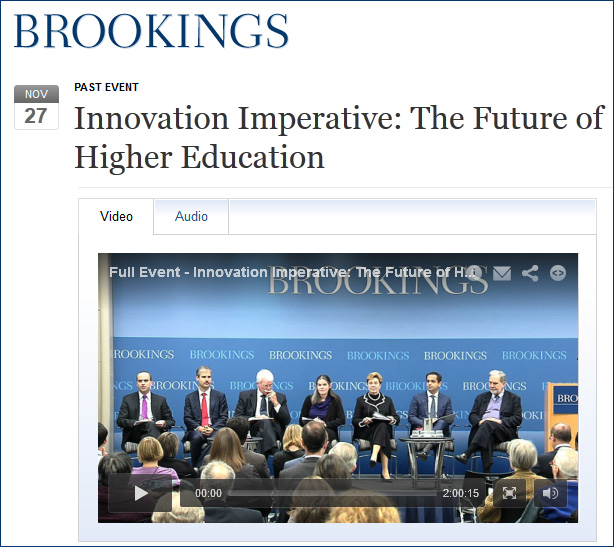Excerpt:
With the public’s continued focus on value and affordability, higher education finds itself at a critical juncture. Cost pressures and increased global demand for access have given rise to innovations that have unleashed new delivery models into the education marketplace. Such innovation is required if universities are to thrive, compete, and bring new relevance and meaning to the value of college in the 21st century.
Also see:
- Americans believe higher education must innovate — from Northeastern News
- President: Witt must adapt to survive — from springfieldnewssun.com by Tom Stafford
Excerpt:
Liberal arts colleges that ignore market realities “absolutely won’t exist in the next decade,” Wittenberg University President Laurie M. Joyner told Springfield Rotarians on Monday. But the practical or applied liberal arts education that she predicts can sustain Wittenberg will encourage deeper connections with Springfield, she said while speaking at the Hollenbeck-Bayley Conference Center, because “our students learn better when dealing with real-world problems.” A shrinking pool of price-sensitive high school graduates has combined with a bad economy to produce “the equivalent of a perfect storm for some of us,” said Joyner, who succeeded Mark Erickson on July 1. - Surviving disruption — from hbr.og by Maxwell Wessel and Clayton M. Christensen
Excerpt:
…to meet disrupters with disruption of their own, but also to guide their legacy businesses toward as healthy a future as possible. - Sanjay Sarma appointed as MIT’s first director of digital learning — from MIT by Steve Bradt
Mechanical engineering professor will shepherd efforts to integrate elements of online education into traditional MIT courses.
From DSC:
Experimentation. Innovation. Experimentation. Innovation. Fail. Fail. Succeed. Fail. Succeed. Fail.










[…] on danielschristian.com Comparte esto:MásMe gusta:Me gustaSe el primero en decir que te […]